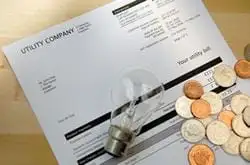Nuclear, coal and science get boost in Bush budget
WASHINGTON, D.C. - Research into producing electricity from low-emission coal and nuclear plants saw big funding boosts in the 2009 budget request submitted by the U.S. Energy Department recently, along with experiments in basic energy sciences.
The 2009 budget proposed by the White House - which requires congressional approval - includes $25 billion in discretionary budget authority for the Energy Department, up nearly 5 percent from 2008.
The lion's share of the funds - about $9.1 billion - goes to securing U.S. nuclear weapon stockpiles. Funding for energy resource initiatives fell 10 percent to $3.65 billion, while funding for science programs rose 19 percent to $4.7 billion.
The budget requests big funding boosts for research into high energy physics, nuclear physics and basic energy sciences, which saw funding rise 19 percent to $1.57 billion.
A separate low-income energy assistance program overseen by the Health and Human Services Department fell 22 percent to $2 billion.
Nuclear energy initiatives saw increases across the board, and research into clean coal initiatives rose 40 percent to $818 million. Building a long-delayed nuclear waste dump at Yucca Mountain in Nevada would get about $495 million in funds in 2009. The Energy Department plans to submit a license request for Yucca Mountain to the Nuclear Regulatory Commission later this year.
Capturing carbon emissions from coal plants and socking them away in underground reservoirs was at the top of the department's 2009 priority list. Carbon sequestration research got $400 million in funds, along with $241 million for demonstration projects.
Research initiatives at the DOE's office of energy efficiency and renewable energy saw cuts in research into hydrogen technology and weatherization programs and increases in biomass and biorefineries, with the aim of making cellulosic ethanol cost-competitive with conventional sources by 2012.
Related News

Power customers in British Columbia, Quebec have faced fees for refusing the installation of smart meters
SAINT JOHN - NB Power customers who do not want a smart meter installed on their home could be facing a stiff fee for that decision, but so far the utility is not saying how much it might be.
"It will be based on the principles of cost causation, but we have not gotten into the detail of what that fee would be at this point," said NB Power Senior Vice President of Operations Lori Clark at Energy and Utilities Board hearings on Friday.
In other jurisdictions that have already adopted smart meters, customers not wanting to participate have faced hundreds…




